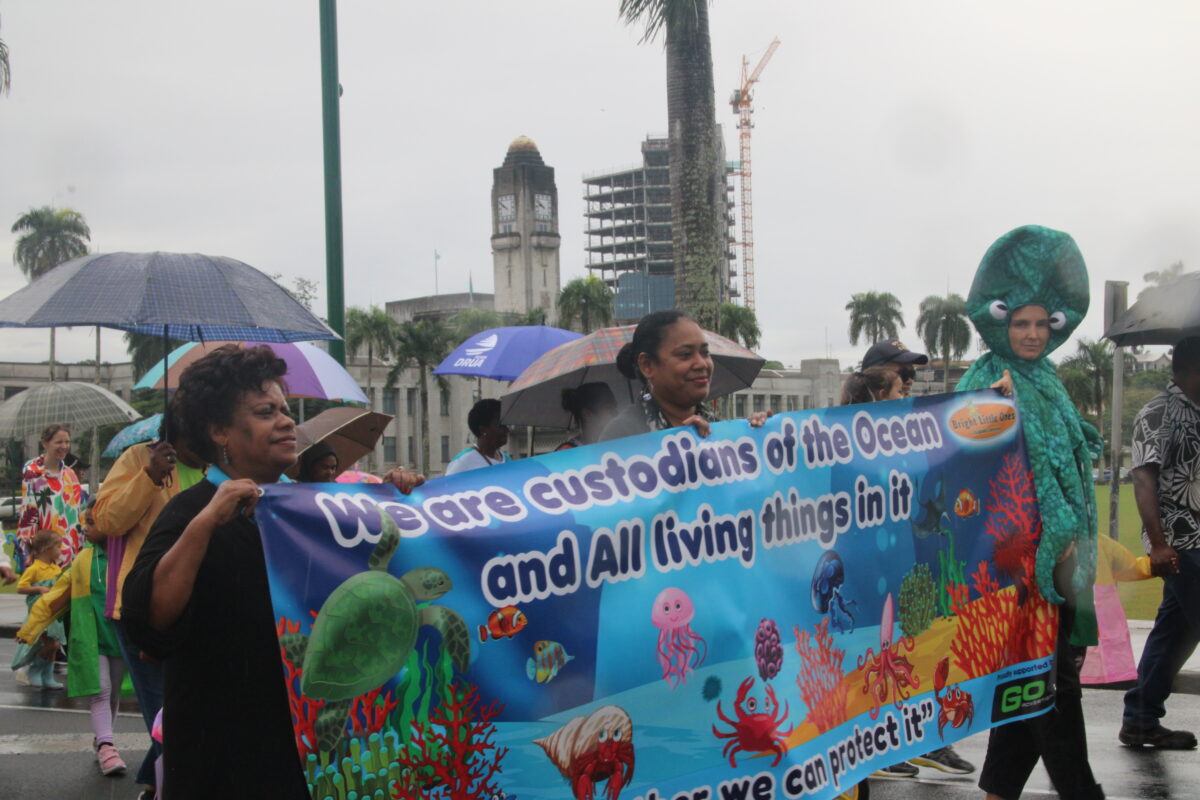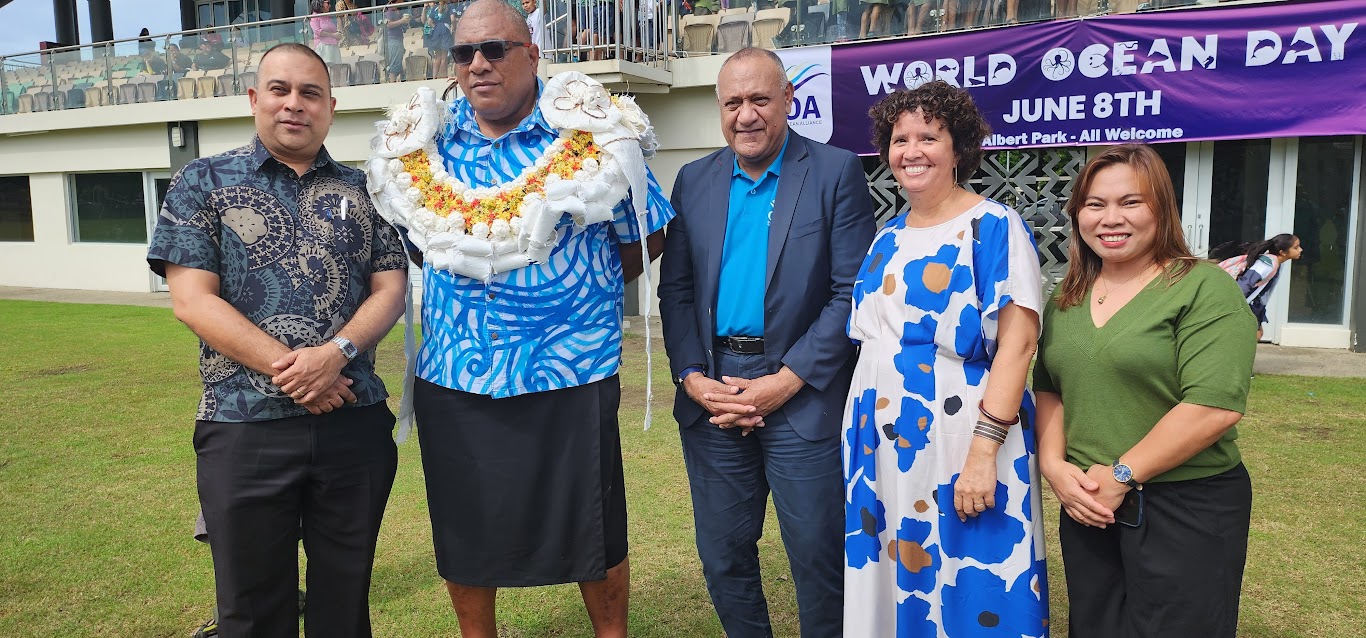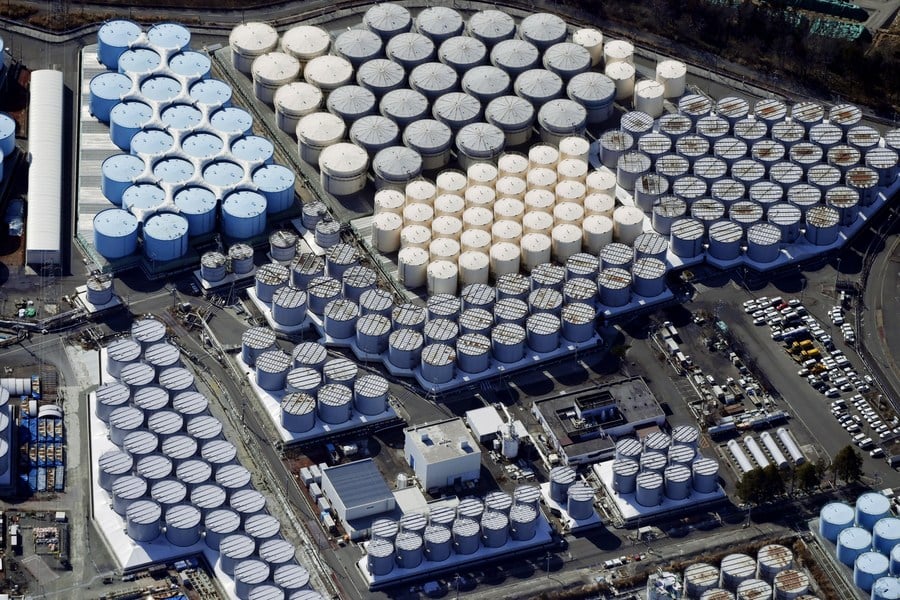Pacific continues to oppose Japan’s plan to discharge radioactive wastewater into the Pacific ocean.
Pacific is yet again raising concern on Japan’s “unconscionable” plan to release water from the crippled Fukushima Daiichi nuclear power plant into the Pacific Ocean.
“While we are still struggling to address the outstanding nuclear testing legacy issues and to get those responsible to own up to their legal and perhaps appeal to their moral underpinnings to clean up their mess– we are now looking most likely to another wave of challenges with nuclear waste,” said Acting Secretary General of the Pacific Islands Forum and the incoming Pacific Ocean Commissioner, Dr Filimon Manoni.
“We cannot ignore the pressing challenges of pollution, illegal, unreported and unregulated fishing, warming and acidification and the erosion of marine biodiversity.
“The issue is further exacerbated by the challenge now presented by Japan’s decision to discharge radioactive wastewater into the Pacific.
Dr Manoni said the potential impacts of such a discharge are still unknown, however, “we are hopeful that the undertaking by the Prime Minister of Japan in February this year that there will not be any discharge until it is safe to do so holds true.”
The Pacific Islands Climate Action Network (PICAN) Regional Coordinator, Lavetanalagi Seru, said it is evident that the risks to the environment, human health and the Pacific are too high.
“Our ocean is under attack. The health of our ocean is waning. It’s being plundered for its minerals. It’s being overfished.
“Yet, somehow, we still think it’s okay to dump nuclear wastewater into our ocean—despite the information gaps and the grave concerns raised by governments and civil society.”
He said, “our blue Pacific continent cannot continue to be the world’s dumpsite for unwanted and dangerous waste.”
“As Japan continues to exert an enormous amount of effort preparing to poison the Pacific, the Japanese government ignores the numerous calls by Pacific Leaders, through the Pacific Islands Forum, to address the serious information gaps and grave concerns uncovered by the Independent Panel of experts appointed to review the scientific data.
“What is unfolding is not only a test to Japan but also a test to Pacific regionalism.
“Japan’s reputation and long-standing relationship with the Pacific is in serious jeopardy,” said Seru.
He said more data is needed before any ocean release.
“It is no longer a domestic issue for Japan as its impact would transcend national boundaries and is, therefore, a direct threat to the Pacific. Our leaders need to respond accordingly.
“The Japanese Government needs to be accountable and transparent in its deliberations with Pacific leaders.”
He stressed, “we cannot afford to get this wrong.”
“As large ocean states, and as custodians of over a third of the earth’s surface, the Pacific’s voice and concerns must be taken seriously.
“As a region, the Pacific has learnt a lot from our nuclear heritage, it seems the rest of the world has not.”
This is why Forum Leaders have envisioned the 2050 Strategy for the Blue Pacific Continent for the Pacific region.
“A vision by 2050 that we can maintain a healthy ocean, abundant in resources and supporting a healthy planet for prosperity. In effect the Ocean underpins the 2050 Strategy,” said the Pacific Ocean Commissioner.
“As the Forum Leaders are deciding on this process, we should expect later this year an implementation plan for the strategy outlining some of the region-wide collective steps to achieve that vision for transformative change,” he said.
According to Xinhua Asia and Pacific News, Japan started sending seawater into an underwater tunnel built to release nuclear-contaminated water into the ocean on Monday afternoon, without any early announcement.




